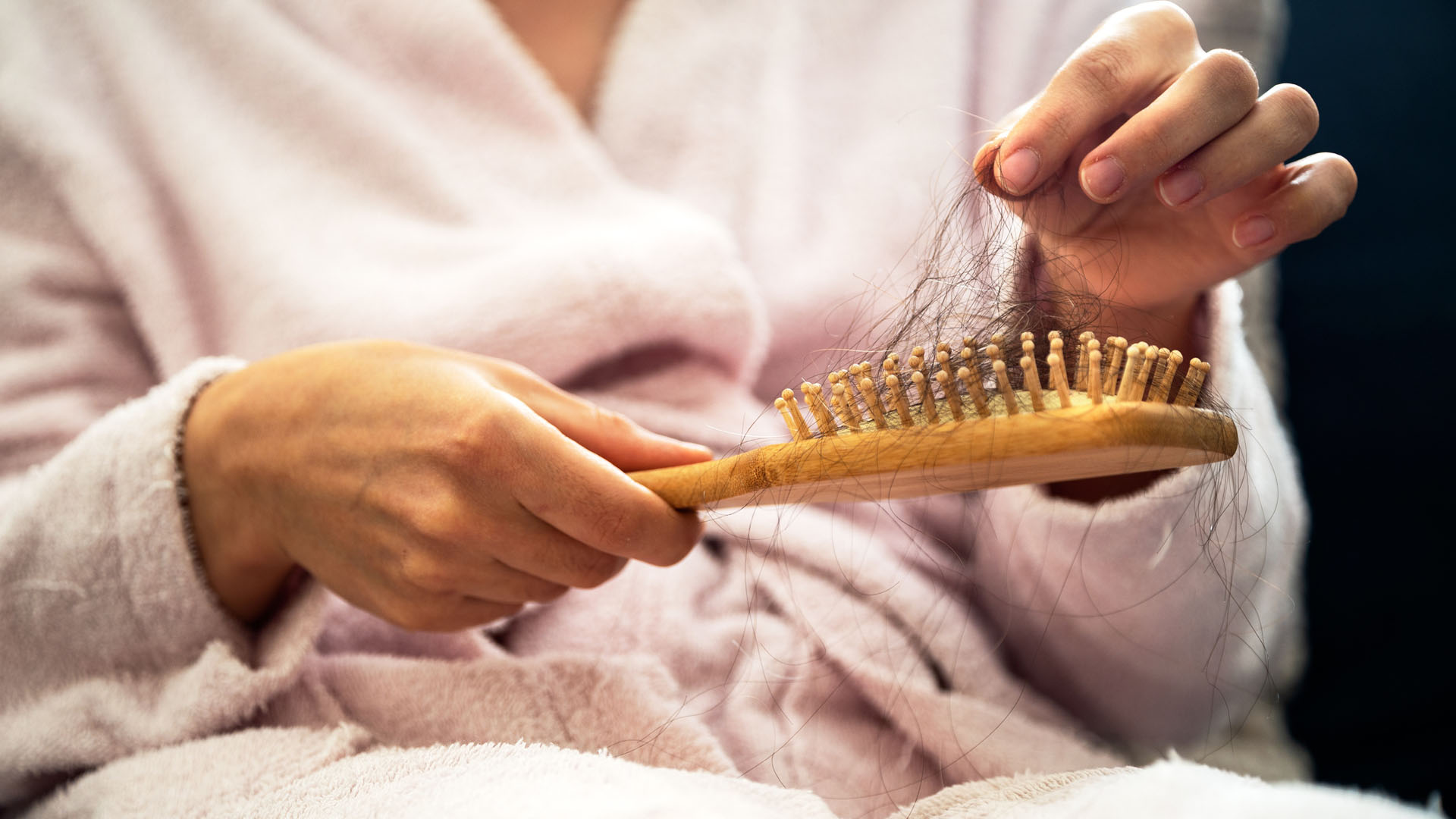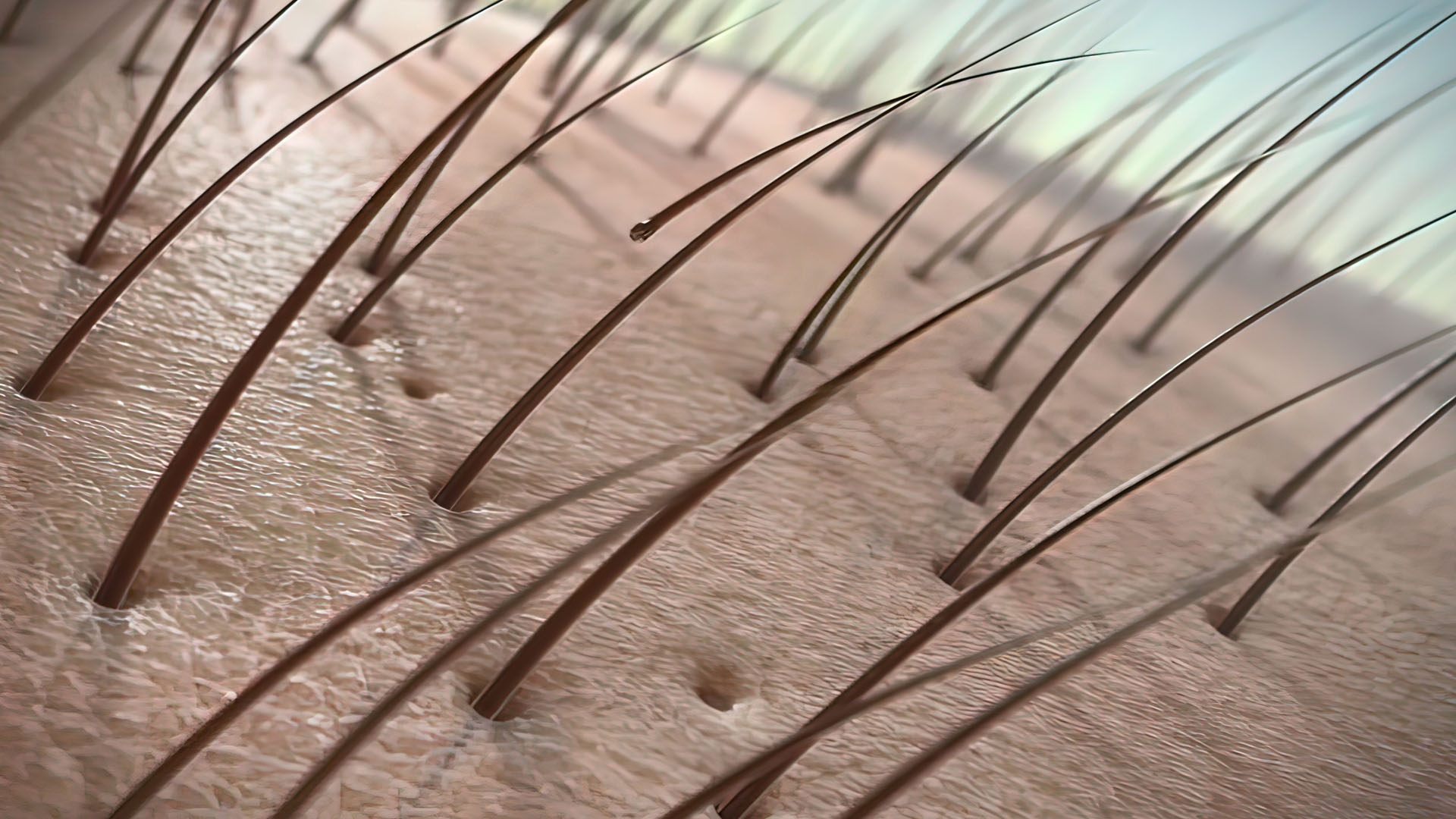Can stress cause hair loss?
Chronic stress may lead to hair loss, research suggests. But it is often reversible.

Get the world’s most fascinating discoveries delivered straight to your inbox.
You are now subscribed
Your newsletter sign-up was successful
Want to add more newsletters?

Delivered Daily
Daily Newsletter
Sign up for the latest discoveries, groundbreaking research and fascinating breakthroughs that impact you and the wider world direct to your inbox.

Once a week
Life's Little Mysteries
Feed your curiosity with an exclusive mystery every week, solved with science and delivered direct to your inbox before it's seen anywhere else.

Once a week
How It Works
Sign up to our free science & technology newsletter for your weekly fix of fascinating articles, quick quizzes, amazing images, and more

Delivered daily
Space.com Newsletter
Breaking space news, the latest updates on rocket launches, skywatching events and more!

Once a month
Watch This Space
Sign up to our monthly entertainment newsletter to keep up with all our coverage of the latest sci-fi and space movies, tv shows, games and books.

Once a week
Night Sky This Week
Discover this week's must-see night sky events, moon phases, and stunning astrophotos. Sign up for our skywatching newsletter and explore the universe with us!
Join the club
Get full access to premium articles, exclusive features and a growing list of member rewards.
Thinning hair is a normal part of aging, but certain lifestyle factors or health conditions can cause sudden or gradual hair loss.
Stress and hair loss can also be related, particularly if a person experiences high stress levels, according to the Mayo Clinic. In these cases, a person may notice that more hair is falling out or that fewer hairs are growing back. Both men and women can be affected, according to the Mayo Clinic.
While many types of stress-related hair loss are temporary, anyone noticing sudden or patchy hair loss should speak to their doctor. This can sometimes signify an underlying condition that may need medical treatment.
Why does stress cause hair loss?
Stress is any type of change that causes physical, emotional or psychological strain, according to the World Health Organization. Everyone experiences stress to some degree at certain moments in their lives, but long-term or intense stress can have more severe effects on the brain and body.
Chronic stress has been linked to hair loss for years, but until recently researchers haven’t fully understood why. In 2021, a study in mice published in the journal Nature found a potential mechanism. Researchers subjected mice to stress, which increased the animals’ levels of cortisol, the body’s stress hormone. Higher levels of cortisol meant the mice’s hair follicles remained in an extended resting stage, where the follicles remained inactive. When hair follicles are inactive, hair doesn’t grow, yet the mice continued to shed hair at their normal rate. Increased cortisol also prevented the cells beneath the hair follicle (dermal papilla) from secreting a molecule called GA56. GA56 activates hair follicle stem cells, encouraging new growth.
Because the Nature study was in mice, it’s not clear if the same mechanisms explain why stress may lead to hair loss in humans. But it’s clear there is a link between stress and hair loss, said Eva Proudman, a consultant trichologist, or specialist in hair-related diseases, for UK Hair Consultants.
Prolonged or intense stress can also cause the immune system to overreact, contributing to hair loss, Proudman told Live Science. According to a 2020 review in the Central European Journal of Immunology, alopecia areata is a type of hair loss where a person’s immune system attacks the hair follicles. Environmental factors, such as stress, may trigger this reaction, the review authors suggested.
Get the world’s most fascinating discoveries delivered straight to your inbox.
How does stress impact the hair cycle?
Hair growth happens in a cycle consisting of several different stages. At any one time, different hairs on a person’s head are in different phases. There are four distinct phases, according to a 2017 study in the journal Clinical, Cosmetic and Investigational Dermatology:
- Anagen — the growth phase: 90% of follicles are in this stage at any one time, and it can last as long as six years on the scalp before entering the next stage. In this phase, hair follicles continually push out new hairs that continue to grow until they’re cut or fall out.
- Catagen — the transition phase: This short, 10-day stage sees the hair follicles shrink as blood supply to the cells is cut, slowing down hair growth. Around 1% of follicles are in this stage.
- Telogen — the resting phase: Around 9% of follicles are in this stage at any one time, and it lasts around three months. During this phase, the hair follicles remain inactive.
- Exogen — the shedding phase: This is the final stage in which individual hairs fall out.

When stress causes a disruption to this cycle, more hairs move into the telogen phase, causing an increase in hair shedding and overall thinning, Proudman said.
Types of stress-related hair loss
According to the Mayo Clinic, three types of hair loss are associated with elevated stress levels.
Telogen effluvium
Telogen effluvium is when large numbers of hair follicles are pushed into the resting phase. As a result, people with this type of hair loss experience more hair falling out during brushing or washing, and the hair becomes noticeably thinner.
“This condition disrupts the normal growing and shedding cycle of the hair,” Proudman said.“Stress can cause the hair's growing phase to become shorter, with more hair moving into the resting and shedding phases, increasing the amount of hair lost.”
Telogen effluvium is not normally permanent, Proudman said, and once professionals have identified the underlying causes, they can treat it effectively.“
Alopecia areata
In alopecia areata, the immune system attacks the hair follicles, causing patches to appear on the scalp, Proudman said. “The patches are usually the shape and size of a coin, although they can be larger,” she said. This type of alopecia is not permanent, and the hair can recover and regrow.
The exact cause of any particular case of alopecia areata often can’t be determined, Proudman said, but factors such as stress, shock, grief, illness or accidents can trigger it.
Trichotillomania
Trichotillomania describes an urge to pull hair from the scalp or other body areas. “Stress is a major contributing factor in this type of hair loss,” Proudman said. “It leaves bald patches on the scalp, which can become permanent.” This is because constant and persistent pulling can cause inflammation around the hair follicles.
Can stress-related hair loss be reversed?
It’s possible to reverse many types of stress-related hair loss over time, Proudman said. However, it’s important to seek guidance from a doctor because some more serious medical conditions can cause hair loss as well. .
According to the UK Institute of Trichologists, treatments for stress-induced hair loss can include lifestyle or dietary changes, as well as low-level laser hair therapy on the scalp, which may help to stimulate follicles back into a healthy growth cycle.
Managing stress effectively alongside having a healthy, balanced diet and good sleep can also prevent stress-related hair loss, Proudman said.
This article is for informational purposes only and is not meant to offer medical advice.
Joanne Lewsley is a UK-based freelance writer and editor, covering health and lifestyle news and features. She mainly creates evidence-based health and parenting content and has worked with a number of global sites, including BabyCentre UK, Medical News Today, Fit & Well, Top Ten Reviews, and Yahoo!
 Live Science Plus
Live Science Plus











